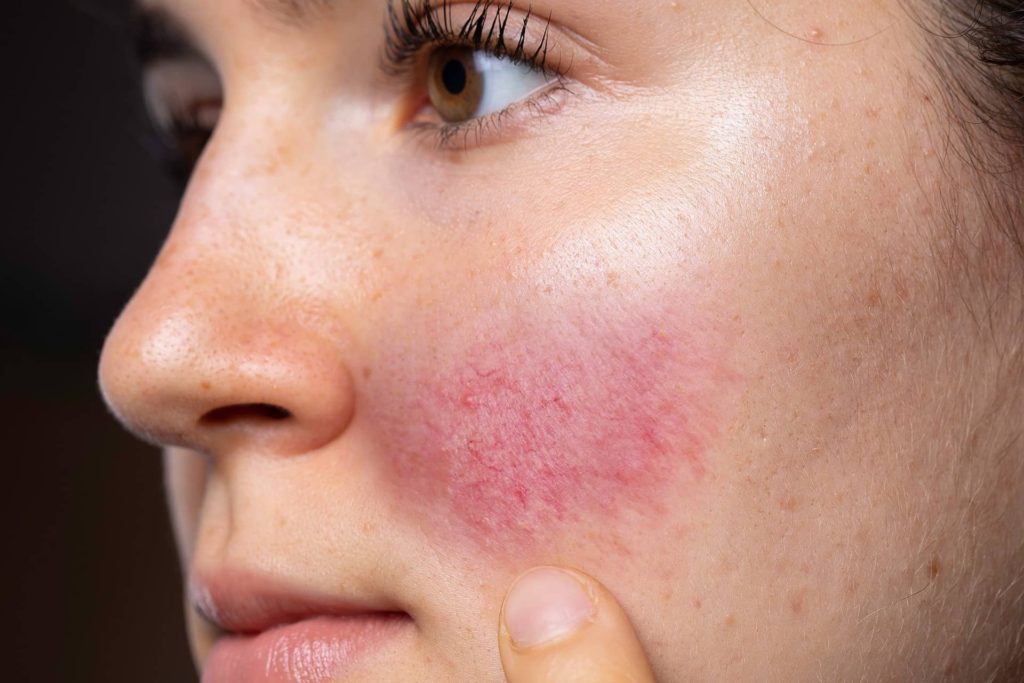
It is a relatively common inflammatory skin disease similar to acne vulgaris, also called acne rosacea. It manifests as redness on the face (especially cheeks and nose) with appearance of small blood vessels on the skin, and increasing skin thickness. It affects women more than males, especially middle-aged and light-skinned people. Rosacea patients need to take care of their skin and apply important recommendations, and this is what we do at Perla Dermatology Clinic, under the supervision of Dr. Inas Musa.
Predisposing factors:
Having rosacea in one of your family members increases your risk of developing it, as well as: smoking, female gender, middle ages, fair skin.
Symptoms:
Redness of the skin over the affected area, flushing and burning sensation in the face, telangiectasias, the appearance of pustules resembling the rash that appears in acne (all types of acne rashes except comedowns), the disease may extend to the eye, causing conjunctivitis, redness and burning sensation in them, and here you should see an ophthalmologist.
Complications:
In the case of chronic disease, there is an increase in skin thickness and pores expand, especially in the nose area. This leads to a huge nose with wide pores, which is called rhinophyma and it is more common in men, and causes a major aesthetic problem. You need special treatments such as laser and other latest techniques available at Perla Dermatology Clinic. Rosacea may cause eye involvement in several forms (conjunctivitis, eye rosacea, corneal problems, eyelid problems, ..).
Frequently Asked Questions
Stay away from eating some foods (hot foods, spices, alcohol, any food you notice worsens your symptoms), protection from the sun by using a sunscreen with an appropriate sun protection factor SPF, protecting yourself from temperature changes, whether extreme heat or extreme cold, washing the face with a special wash prescribed by doctor and avoiding the use of regular soap, avoiding the application of products that irritate skin, following up with your doctor permanently and adhering to his recommendations.
There are many treatments that are used to control the symptoms of rosacea. First of all, the above-mentioned recommendations must be adhered to, and the triggers must be known to be avoided. Doctor may prescribe you creams and gels that are applied topically to help remove pimples and telangiectasias. It is possible to use the same common acne medications (such as Isotretinoin) in severe cases, as well as the use of specific antibiotics. Laser can be used to treat dilated vessels or rhinophyma.
Contact Us For Inquiries
If you have more questions about Rosacea, or to book an appointment with Dr. Inas Musa in Dubai.
